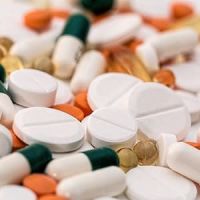Sepsis is a complex syndrome characterised by simultaneous activation of pro- and anti-inflammatory processes. During sepsis, immune cells undergo profound phenotypic modifications in their activation state, response to stimuli, localisation, and numbers. These phenomena are finely regulated by various cytokines and haematopoietic growth factors (HGFs) – i.e., glycoproteins that cause immune cells to mature and/or proliferate.
"HGFs play a crucial in both early and late phases of sepsis but there is to date no positive clinical trial regarding their use," says a review article in the journal Frontiers of Immunology. "The biological effects of HGFs are incompletely understood and require further investigations."
After an inflammatory phase, sepsis patients present signs of immunosuppression and possibly persistent inflammation. Poor response to infection, lymphopenia, and decreased reparative properties of immune cells are observed. Some authors termed this phase a persistent inflammation, immunosuppression, and catabolism syndrome (PICS). There is a debate whether the second phase clinical presentation is mostly due to inflammation or immunosuppression.
HGFs are deeply involved in sepsis pathophysiology both in the initial phase and the late phase. They were naturally identified as potential therapeutic targets to treat septic patients. However, until now, there is no evidence of clinical benefit for the use of HGFs during sepsis.
The "various pathways involved and the wide range of clinical presentation" may explain partly the negative results of clinical trials on the use of HGFs, the article says. Moreover, included patients in clinical trials are highly heterogeneous – such that a potential benefit of some HGFs could have not been seen because of its futility in some clusters of patients.
Of note, HGF effects are compartmentalised in space and time. Therefore, the timing of administration and the route of administration are crucial and require more developments, the article explains.
Most of the efforts regarding the use of HGFs during sepsis are now concentrated on the immunosuppressed patients. One important underlying question is that of the appropriateness of reintroducing inflammation in these patients. "The boosting of the immune system could be exaggerated and at the end detrimental," the article points out. The ongoing trial of granulocyte macrophage – colony stimulating factor (GM-CSF) and interleukin-7 (IL-7) during sepsis will help researchers to have a better idea of their utility in this indication. However, erythropoietin (EPO) and granulocyte – colony stimulating factor (G-CSF) treatments seem to be deleterious during sepsis.
In conclusion, the article says "there is no benefit with the systematic use of HGFs during sepsis, and clusters of patients that could benefit from such treatments have to be identified."
Source: Frontiers of Immunology
Image Credit: Wikimedia Commons
References:
Chousterman BG and Arnaud M (2018) Is There a Role for Hematopoietic Growth Factors During Sepsis? Front. Immunol. 9:1015. doi: 10.3389/fimmu.2018.01015
Latest Articles
Sepsis, haematopoietic growth factors, HGFs
Sepsis is a complex syndrome characterised by simultaneous activation of pro- and anti-inflammatory processes. During sepsis, immune cells undergo profound phenotypic modifications in their activation state, response to stimuli, localisation, and numbers.



























